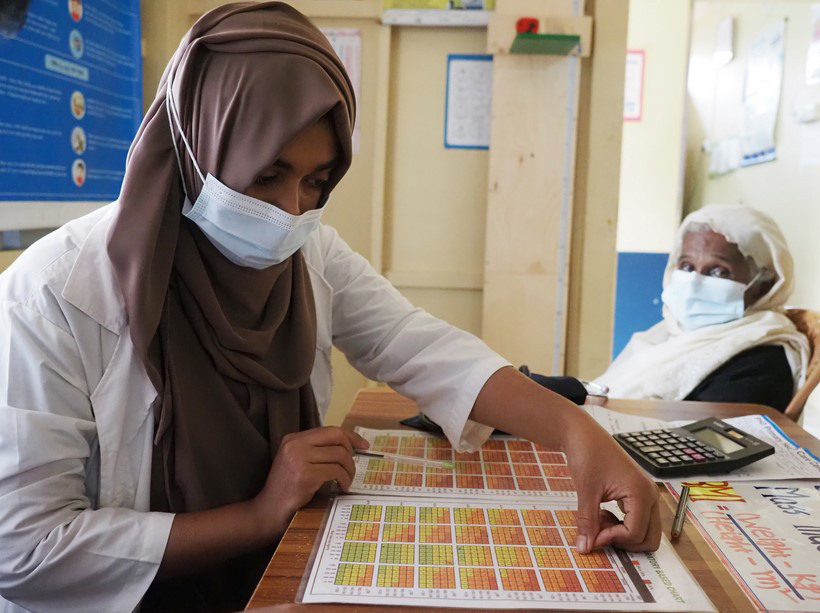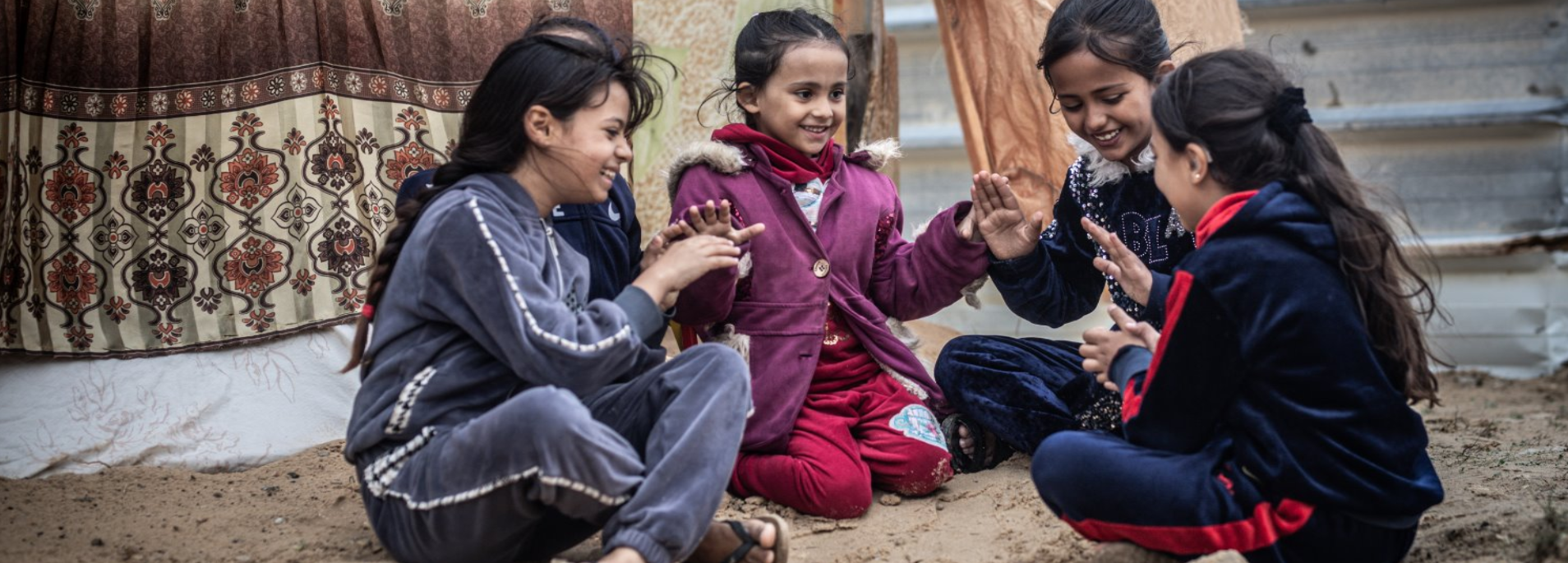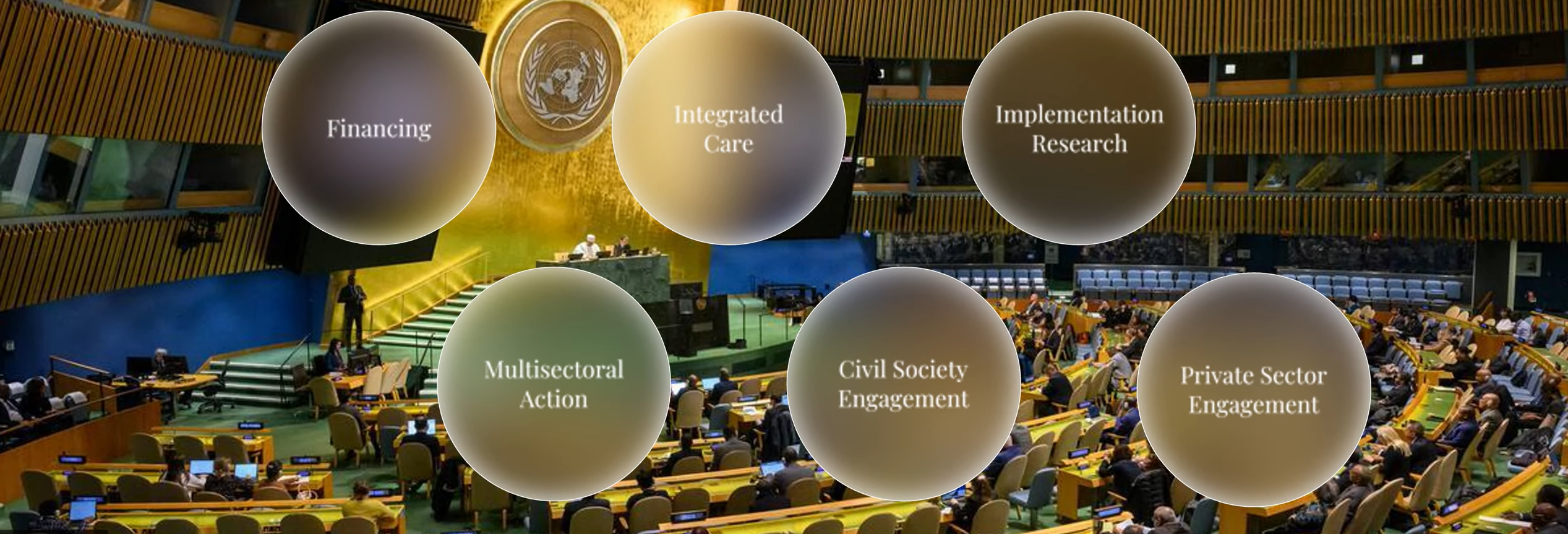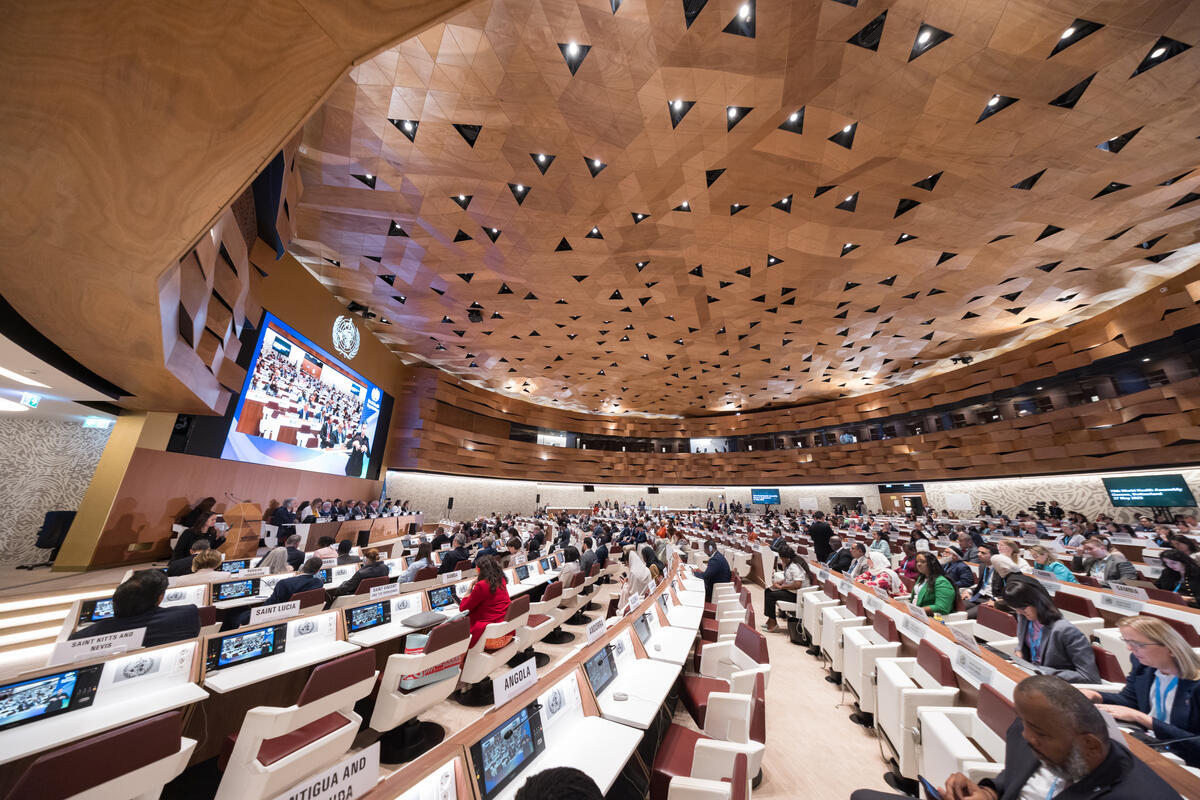Addressing the burden of Noncommunicable diseases (NCDs) among refugees and migrants remains a major challenge globally. While communicable diseases continue to be an overriding concern among displaced populations in humanitarian settings, the increasing burden of NCDs –which include cardiovascular diseases, chronic respiratory diseases, diabetes and cancer– is leading to a shift of focus in emergency preparedness and response interventions.
In the Rohingya refugee camps in Cox’s Bazar, the most densely populated in the world, WHO is supporting Government health authorities and humanitarian partners to better integrate NCD services into primary health care, and thus improve health and wellbeing and prevent premature deaths among the refugee population and adjacent host communities.
The successful outcomes reached within the NCD delivery programme in Cox’s Bazar have been acknowledged by external actors and partners, leading to the identification of standardized practices that can be replicated in other humanitarian settings.







